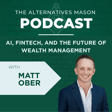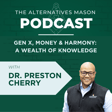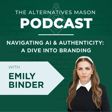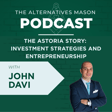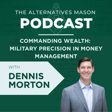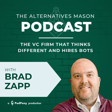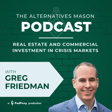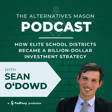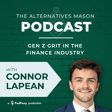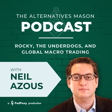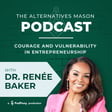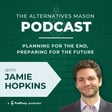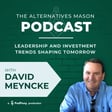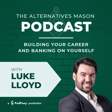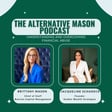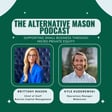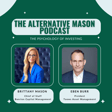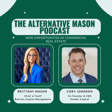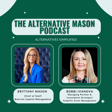
The Alternatives Mason: Building Alts Knowledge Brick by Brick | Episode 11 | Matters of Diversity Featuring Jeff Thomas
Welcome to The Alternatives Mason: Building Alts Knowledge Brick by Brick. Banrion Capital Management uses technology to help independent advisors scale and educate themselves on alternative investments. Since education is such a big piece of the Banrion mission and business, we are excited to kick off this series to dive into the nits and grits of the alternatives space. Episode 11 "Matters of Diversity" features Jeff Thomas, National Director of Advisor Advocacy at Swan Global Investments.
Jeff transitioned from a fourth generation Lobster Fisherman to a Financial Advisor, drawing from his early entrepreneurial experiences and market insights. In addition to his leadership role at Swan Global Investments, he is the Creator & Host of the renowned Investment Masterminds Podcastinar Series, facilitating discussions on various financial topics, notably Alternative Investments.
Jeff is an active advocate for diversity and equality in the financial sector, contributing as a mentor to the FinServ Foundation and holding a leadership position in Females & Finance. He resides near Boston, Massachusetts, with his family.
Connect With Jeff- Investment Masterminds
- Jeff Thomas on LinkedIn
- Jeff Thomas on 𝕏
- Learn more about Swan Global
- Learn more Females and Finance
Learn More About Banrion: Banrion Capital Management
Follow Brittany on 𝕏: @Brittany_Mason
Follow Banrion on 𝕏: @Banrion_Capital
Subscribe to our YouTube Channel: @BanrionCapital
Important Disclosures:
The opinions expressed on the “The Alternative Mason Podcast” are for general informational purposes only and are not intended to provide specific advice or recommendations for any individual or on any specific security.
It is only intended to provide education about the financial industry. To determine which investments may be appropriate for you, consult your financial advisor prior to investing. Any past performance discussed during this program is no guarantee of future results.
The guests featured on this program may be participants on Banrion Capital Management’s platform. As such Banrion may receive payment for their participation as a platform partner.
Any indices referenced for comparison are unmanaged and cannot be invested into directly. As always please remember investing involves risk and possible loss of principal capital; please seek advice from a licensed professional.
Investments are not FDIC-insured, nor are they deposits of or guaranteed by a bank or any other entity, so they may lose value.
Investors should carefully consider investment objectives, risks, charges and expenses. This and other important information is contained in the fund prospectuses and summary prospectuses, which can be obtained from a financial professional and should be read carefully before investing.
Statements attributed to an individual represent the opinions of that individual as of th
